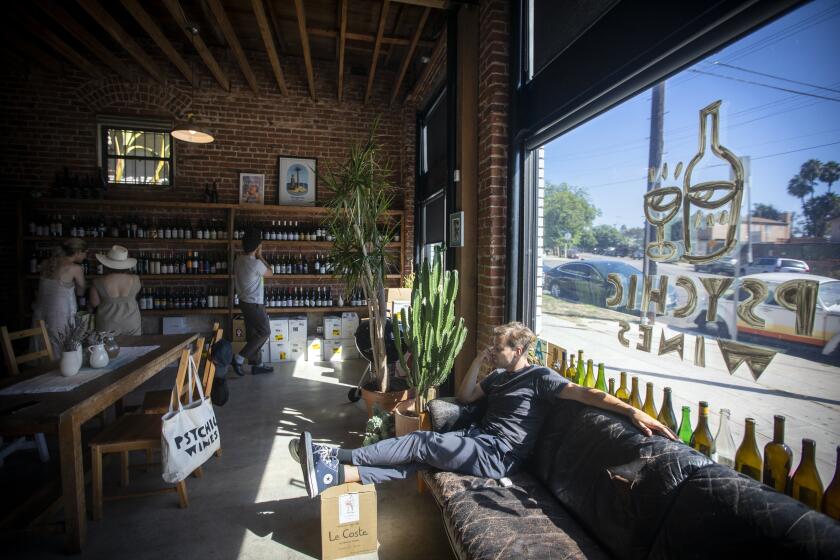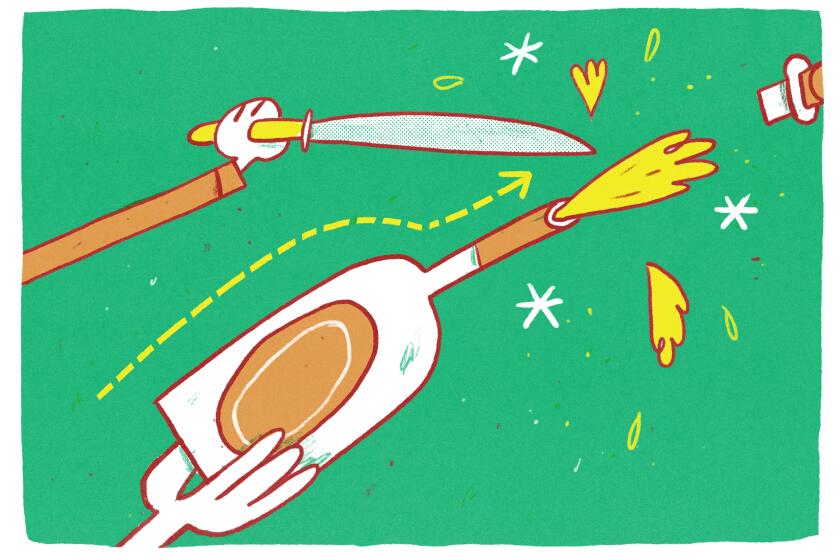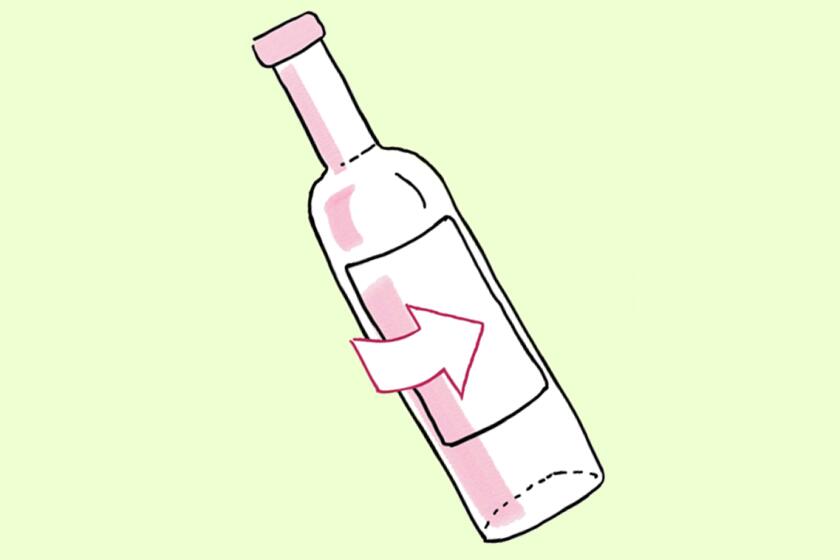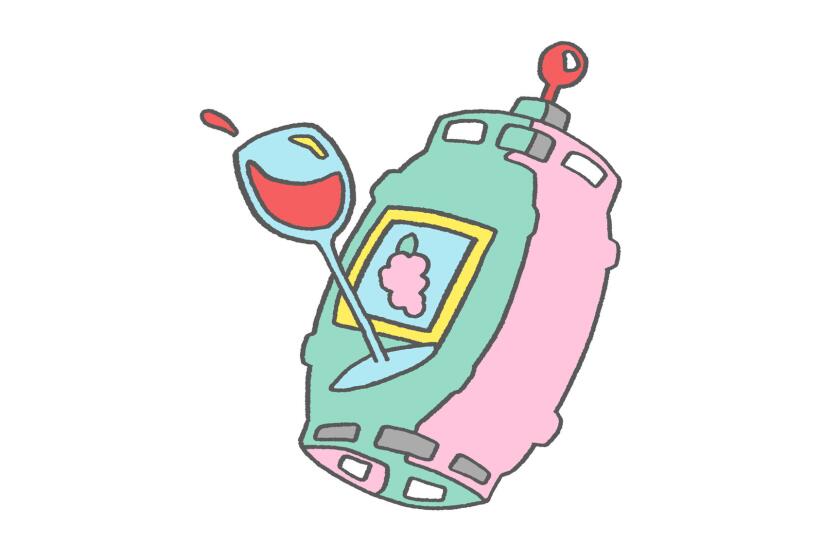Wine industry faces dramatic and ‘calamitous’ impact with Trump administration’s proposed tariffs
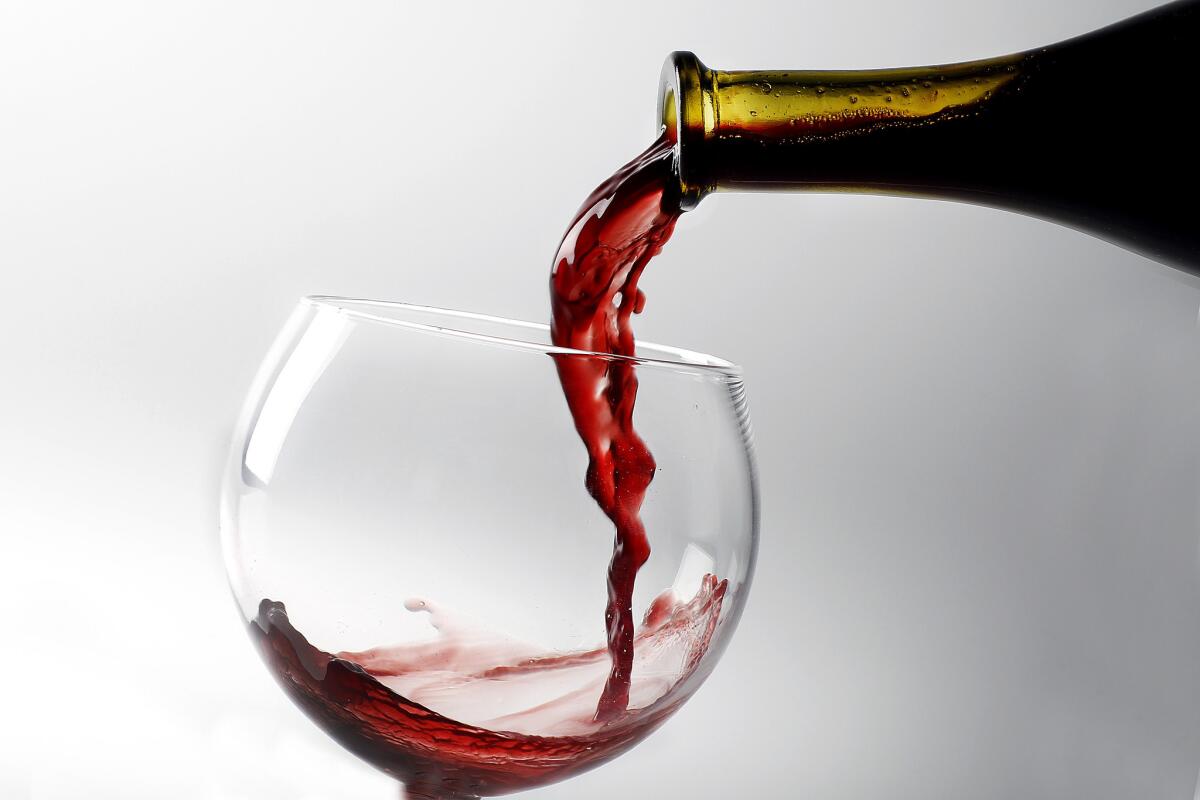
- Share via
For wine sellers, importers and sommeliers, the holiday season is traditionally the busiest time — but this year, it came with a shot of uncertainty and existential dread.
That’s thanks to a looming trade tariff of up to 100% that would affect all European Union countries selling wine to the United States, where imported wine is a $20-billion-a-year industry. This follows a round of 25% tariffs levied in October against Spain, France, Germany and the United Kingdom.
Eat your way across L.A.
Get our weekly Tasting Notes newsletter for reviews, news and more.
You may occasionally receive promotional content from the Los Angeles Times.
If the tariffs are levied, American wine drinkers would be faced with fewer wines coming to America from the EU (especially those made by small, independent producers) and higher prices on the bottles that do make it in.
A wide swath of wine businesses in the U.S. also would be negatively affected, including importers, distributors, wine shop owners, sommeliers and grocery story wine buyers. Many said they feared having to impose salary and staffing cuts as a result of dramatically reduced profit margins.
The tariffs come as part of a mounting trade battle between the United States and the EU, currently embroiled over two separate, interlocking issues: subsidies to Airbus, the Netherlands-based, French-founded aeronautics company; and technology taxes, specifically those recently levied by France against American companies including Facebook and Google.
In response, the Office of the United States Trade Representative has proposed a punitive tariff in retaliation, “for the imposition of additional ad valorem duties of up to 100%” impacting a wide range of imported goods made by every EU nation, stretching from Ireland to Greece.
At the moment these tariffs are merely proposals, with public comment accepted by the Office of the United States Trade Representative using an online comment form through Jan. 13. President Trump, whose name graces a domestic winery in Virginia, described the matter as “a minor dispute” at a NATO summit last month before adding, “I think we will probably be able to work it out.”
California wineries were expanding into China’s big wine market. Trump’s trade war is destroying their plans.
But for those who make their livelihood in the wine trade, the mood is dire.
“If the Trump administration goes through with imposing the 100% tariffs on European wine, we can hold out for a few months,” said Jenny Lefcourt, whose Manhattan-based Jenny & Francois Selections portfolio of natural wine is distributed nationally. “But I think if it stays in place long-term, we will go out of business. This will have a dramatic effect on wine consumption in the U.S., and people will change their drinking habits.”
As I pored over bottles on the shelves at Psychic Wines, I talked with one of the Silver Lake shop’s owners about spending time with winemakers abroad.
Neal Rosenthal, who founded the eponymous Rosenthal Wine Merchant in 1977 (now distributed in 44 states as part of Mad Rose Group), describes the proposed tariffs as “calamitous.”
“We are shipping as much wine as we can over the next several weeks in advance of the possible tariff increase,” he said, “and we are preparing to make internal company adjustments to cope,” including salary cuts and slashed margins.
On the other end of the spectrum, Erin Sylvester’s comparatively micro Sylvester/Rovine Selections (a Los Angeles-based partnership with NYC importer Zev Rovine) is no less freaked out.
“It would be devastating, to say the least,” Sylvester said. “We would need to lay off our entire sales and administrative staff. ... The fact that I could lose my business due to an arbitrary government decision and not due to my own failures is both maddening and heartbreaking.”
“The hardest part is that it’s really beyond our control,” says Jill Bernheimer, proprietor of Domaine L.A., a natural-leaning wine shop on Melrose Avenue that opened in 2009. “I expect supply to tighten, as some importers will delay bringing in inventory as they wait/hope for the tariffs to pass. I’ll personally be able to afford fewer bottles for the shelves … [and] there will indeed be some sticker shock.”
These proposed tariffs, if enacted, will affect a range of products, not just wine, which means a host of American businesses dealing in imported products are threatened.
“We will be greatly impacted,” said Lydia Clarke, co-founder of DTLA Cheese and Cheese Cave in Claremont. “Adding an additional 100% tariff could devastate many of us, not just in the short term. The long-term effect of this is horrifying.” Additionally threatened are goods including olive oil, jam, imported meats, Scotch, Irish whiskey, yogurt and more.
The fact that I could lose my business due to an arbitrary government decision and not due to my own failures is both maddening and heartbreaking.
— Erin Sylvester
Some in the wine industry are preaching a kind of cautious optimism: Trade reporter W. Blake Gray, U.S. editor of Wine Searcher, suggested the 100% tariff margin “doesn’t make much sense as a negotiating tactic.”
“It’s hard for me to see the U.S. responding with an enormous blanket tariff in response,” he added.
Meanwhile, many of those who make their livelihood in wine are preparing for the worst. Bernheimer plans to buy “a bit more aggressively” this month just in case. Lefcourt has upped ordering too — “as many containers from Europe as we could get in before Jan. 14.”
“I opened during the recession in 2009, and I have a sense this may evoke a lot of what I experienced then,” Bernheimer said. “It will be a matter of surviving a year or two of tighter pursestrings and careful cash flow.”
Related stories
More to Read
Eat your way across L.A.
Get our weekly Tasting Notes newsletter for reviews, news and more.
You may occasionally receive promotional content from the Los Angeles Times.
